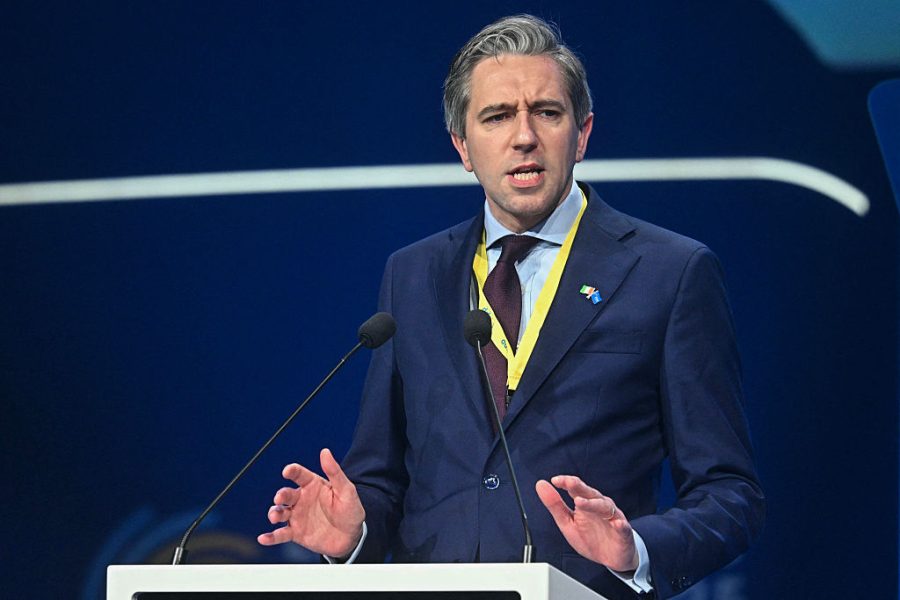On the eve of Israel’s Remembrance Day, as sirens pierce the quiet of Israeli streets and the nation stands still to honour its fallen, something different will be happening far beyond Israel’s borders. This year, the pain pulses through the hearts of Jews across the diaspora. The grief is no longer distant – it is raw, personal, and inescapable. The surge in anti-Semitism, venomous and unapologetic, has woven our fates together.
Yom HaZikaron, Israel’s Remembrance Day for fallen soldiers and victims of terror, has always been a deeply Israeli ritual. The massacre on 7 October, the hostages still held in Gaza, suspended between life and death, and the high death toll in the war, make this Remembrance Day particularly painful, with so many families joining the ever-growing circle of loss. Mine among them: four members of my family have been killed by Hamas and Hezbollah since October 2023. Two were mother and son killed by a Hezbollah missile while tending to their farm in northern Israel. Since last Remembrance Day, 320 soldiers and 79 civilians have been killed in the war or from acts of terrorism.
Diaspora Jews – a community that I have been a part of for over 16 years, since leaving Israel – while emotionally connected, have often observed from the periphery. 7 October shattered that distance.
In Britain, where hostility festers in protests, on campuses, and in the casual venom of social media, Jews feel the weight of being targeted. The atrocities of 7 October, when families were slaughtered, hostages taken, homes burnt to the ground, and communities razed, were not met with universal horror. Instead, some celebrated. Others justified. A 2024 poll among UK university students, revealed that 29 per cent found Hamas’s attack to be an ‘understandable’ act of resistance. A further 35 per cent were ‘unsure’ if the attack was justified or an act of terrorism.
The chilling refrain – ‘they deserved it’ – still echoes in the air.
While British Jewish identity and loyalty remains firmly rooted in Britain, the community is also bound by a grief that transcends borders, because the hatred that killed them stalks us too. Across the UK, there has been a rising tide of antisemitism, spiking 589 per cent since 7 October, according to the Community Security Trust. But each synagogue defaced, each slur hurled, each Jewish student harassed, tightens the thread connecting us and Israel’s loss. We mourn not just the dead, but the humanity that fails to mourn with us.
This Remembrance Day, the Jewish diaspora stands shoulder to shoulder with Israel, not out of politics, but out of shared survival. The hostility directed at our very existence as a group, is a bridge that links us to the parents who bury their children, the soldiers who will never return, those young people who just wanted to dance and found their death at the hands of sadistic terrorists.
That unity, though born of pain, has also been forged in resilience. The Jewish diaspora, scattered yet unyielding, finds strength in Israel’s fight for survival. We mourn. We light candles, sing prayers, and hold fast to the stubborn hope that has carried us through centuries of darkness. We grieve as one, but we also stand as one – unbowed, unafraid, and fiercely defiant.
The day after Remembrance Day, Israel will celebrate its 77th Independence Day. From the depths of sorrow, the nation will rise in joy, marking the miracle of its existence – a testament to a people who, despite every attempt to erase them, endure.
For the diaspora, this too is personal. Israel’s independence is our beacon of hope that no amount of hatred can extinguish. As we join in spirit, we celebrate the unbreakable thread that binds us all.
Yet, this moment is shadowed by a growing menace: criticism of Israel’s policies has morphed into something darker – a questioning of Israel’s very right to exist and, by extension, the Jewish people’s right to self-determination. In Britain and beyond, voices deny Jews the legitimacy of a homeland, distorting and weaponising the concept of Zionism, framing it as immoral. This is no mere policy debate; it’s a rejection of our history and our right to define our future.
As we remember Israel’s sacrifice, we affirm our hope and a belief in a future where anti-Semitism, and the jubilation in the death of Jews, will no longer be tolerated.







Comments